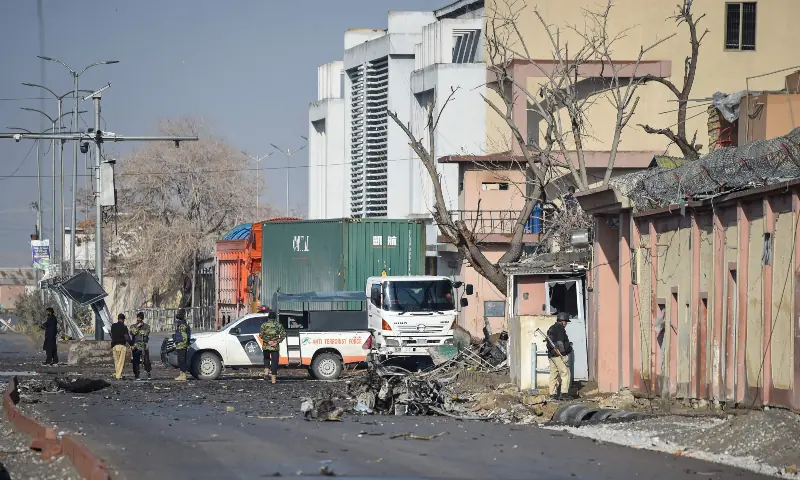Protesters in Kinshasa, the capital of the Democratic Republic of the Congo (DRC), targeted several embassies on Tuesday, demanding action against the M23 rebel group’s offensive in the eastern region of the country. Demonstrators targeted embassies of France, Belgium, Rwanda, Uganda, Kenya, and the United States, with a fire briefly erupting at the French embassy.
The protests were sparked by accusations that international actors have failed to address the conflict, with some demonstrators accusing Rwanda of supporting the M23 rebels—a claim Rwanda denies.
Also See: Pakistan Amid Protests and Sovereignty
Diplomatic outcry over violence
French Foreign Minister Jean-Noel Barrot condemned the attack on France’s embassy as “unacceptable” and confirmed the fire was quickly brought under control. Kenya’s Cabinet Secretary for Foreign and Diaspora Affairs, Musalia Mudavadi, criticised the violence, calling it a violation of international law.
In response, Congolese Communications Minister Patrick Muyaya urged protesters to demonstrate peacefully and respect consular infrastructure. He later announced that the situation was under control after police used tear gas to disperse the crowds.
Conflict in Eastern DRC intensifies
The M23 rebel group, which emerged in 2012, claimed on Monday to have taken control of Goma, a key city in North Kivu province. The group, composed of Tutsi fighters, says it is fighting for the rights of the DRC’s minority Tutsi population. However, the rebels are also accused of seeking control over critical mineral mines in the region.
Since last week, at least 17 UN peacekeepers have been killed in the fighting, including three South African peacekeepers who died in an attack at Goma airport on Monday. Hospitals in the region are overwhelmed with casualties, and fighting has left many residents unable to access medical care.
International reactions and accusations
The UN, the DRC government, and several countries, including the US, accuse Rwanda of supporting the M23 rebels. Rwanda has consistently denied these allegations. Meanwhile, many Congolese also hold Western nations responsible for supporting Rwanda through military aid.
Al Jazeera’s Malcolm Webb reported from Nairobi that the embassies of the US, France, Belgium, and the Netherlands were targeted by protesters who view these nations as complicit in the conflict.
UN to address crisis
The UN Security Council is set to meet to discuss the ongoing conflict and humanitarian crisis, as efforts to push back the M23 rebels continue. Despite reports of reduced fighting in Goma, the humanitarian toll continues to rise, with hospitals overwhelmed and many residents unable to seek safety or care.
The situation remains volatile as both the international community and Congolese forces face mounting pressure to address the escalating crisis.
This news is sourced from The Express Tribune and is intended for informational purposes only.

![Protesters in Kinshasa targeted US, France, and Belgium embassies over M23 rebel conflict, sparking international outcry. [Image via AFP]](https://southasiatimes.org/wp-content/uploads/2025/01/drc1738087766-0.webp)




